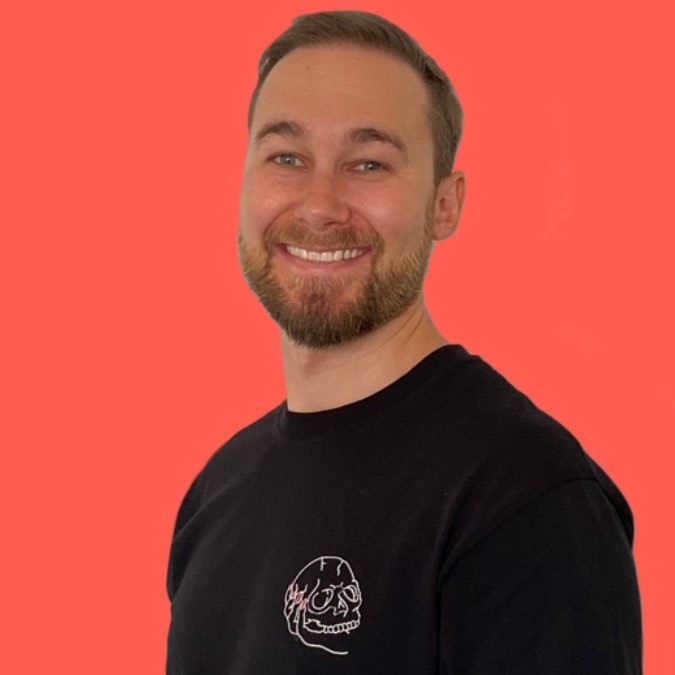I’ll be honest, 2023 was the hardest year of my life. My startup, Valla, started the year fresh from the loss of a cofounder and in the middle of an apocalyptic fundraising environment.
We had launched our consumer legaltech platform eight months before, in the dying days of the 2020-22 investment bubble. The sensible advice at the time was not to rush to revenue, to focus on market development and raise again on narrative instead of being trapped on the growth treadmill too early.
It was good advice, but the world changed as we worked. The startup bubble burst, my cofounder left the business and our nascent investment round screeched to a halt. Our platform was well-loved, but we were still essentially pre-revenue, earning around £1,000 a month from template sales and a test coaching product.
On New Year’s Eve 2023, I had no exec team, no revenue and very little time to take action.
What I did have was belief. Belief from my team, investors and advisors, and also my own personal belief that this was worth all my energy. We had seen the impact we were already making with customers, we could see the huge opportunity in the market and we just needed to find a way to grab it.
So, we adapted. We turned our focus from our scalable platform to the un-scalable world of 1:1 advice, launching a legal coaching package based on the success of our test in 2022.
It was an immediate hit and flooded the capacity of our first freelance lawyer, and we quickly brought on two more lawyers to keep up, along with admin support to answer all the emails.
This was great, but also a huge risk. None of us wanted to build an old-fashioned service business, or a marketplace that only sold hours. We know how easy it would be to “follow the money” and drift away from the billion-dollar opportunity of scalable consumer legals. I knew we had risked global scalability in favour of survival.
Meanwhile, our investor Ascension invited me to pitch at one of their events, and I found an incredible new angel investor. His investment meant that I could bring on an experienced executive team who dove in to build infrastructure to cope with our increasing demand.
But my scaling fears came true: the platform wasn’t built for 1:1 coaching products, and both coaches and customers were getting frustrated as things started to break.
We are still building the aeroplane after jumping off the cliff. We continue to believe we can do it.
I knew we had a real problem when our only solution to grow seemed to be more people instead of tech. We needed to seriously accelerate our product development to grow in a scalable way. But the investment market was still a disaster and we couldn’t raise investment to hire a bigger team.
So, we adapted again. In summer 2023, we made a big bet that the brand-new generative AI tech could radically accelerate our product development. We saw the potential to build a “virtual paralegal” into the platform for both consumers and legal professionals, offering legally informed admin support at scale.
This could be the key to unlocking mass-market legal services at a consumer-friendly price, something previously seen as impossible. That is, if GenAI tech really worked and wasn’t just hype.
We took the risk, and redirected our limited resources to bringing GenAI to Valla. Our Q3 OKR was to ship at least “one unit of magic” to the platform using the tech.
The OKR was vague because we didn’t yet know what was possible: the tech was too new. Our product team became an AI R&D department overnight, testing every new GenAI feature as it emerged: embeddings, function calling, chain of destiny prompts and building in guardrails and proprietary context to ensure we got high-quality output. We rebuilt our service delivery processes as we learned what the tech could and couldn’t do.
The team picked our least scalable product, a case evaluation service, and chipped away at each unscalable part of the process: reviewing documents, determining the key legal issues, prepping for the user call, clarifying key legal questions and writing up a final report.
Our legal coaches became early adopters as we shipped “units of magic” for each step, reducing a service that could take six hours down to just two, including the one-hour client call.
That early traction in GenAI built more investor confidence, and we raised more money. Investors like Resolution Foundation joined us and many followed on, each one adding to the collective belief that kept us going. We continued to grow sales and by late 2023, our AI-augmented case assessment service was now our most popular product.
And now we are here, in 2024. Valla now has 10x revenue, 15 legal coaches and cutting-edge AI features that are opening up all kinds of new opportunities. It has come at the cost of white-knuckling finances, sleepless nights and a constant demand on willpower. We still have so much more to do, but we’ve achieved what many thought impossible a year ago.
But the story isn’t over, and I won’t kid myself by thinking that 2024 is going to be any easier. We are still racing to grab opportunities before they disappear. We are still building the aeroplane after jumping off the cliff. We continue to believe we can do it.



